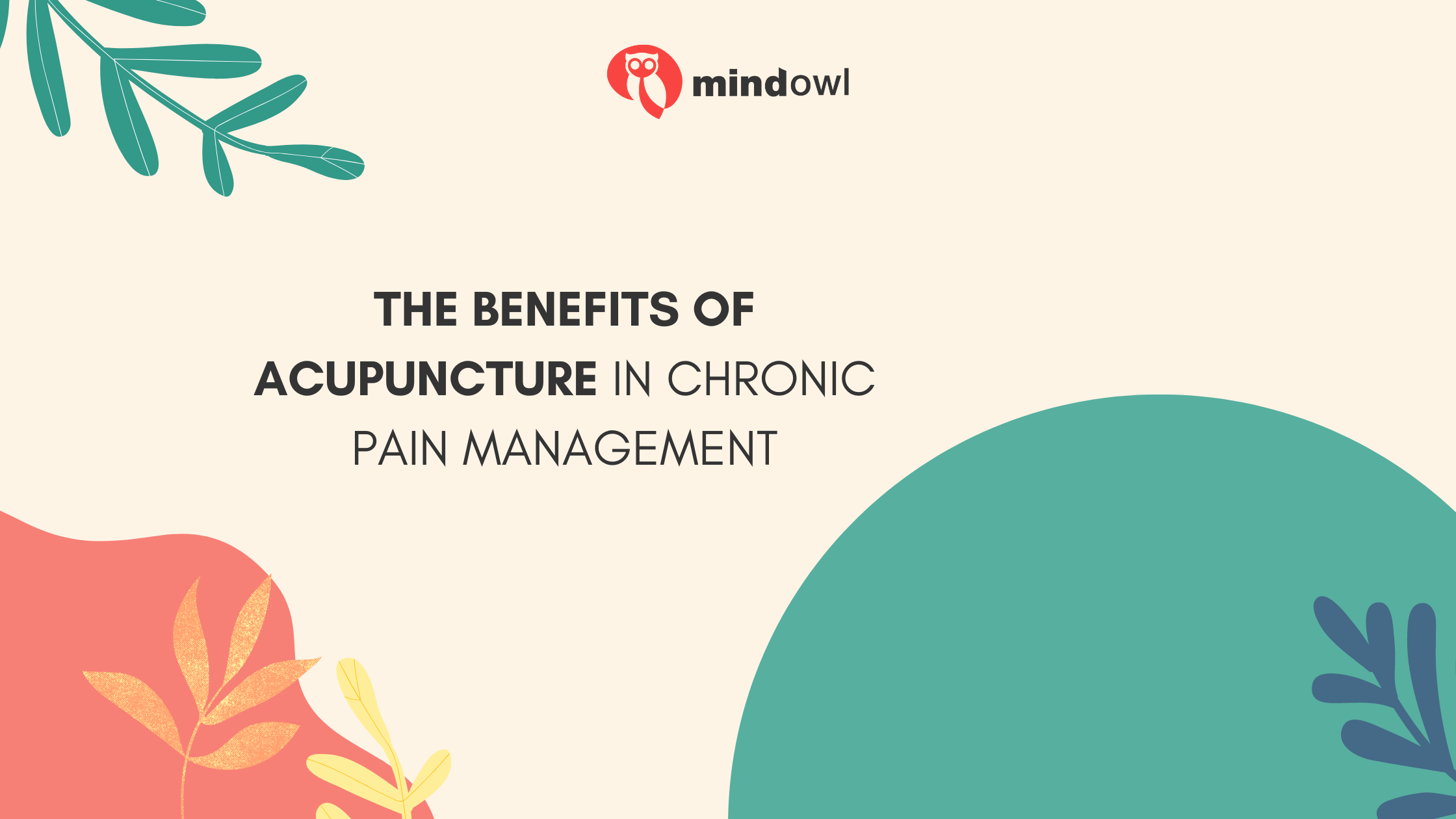Acupuncture has increasingly become recognized as an effective treatment for chronic pain management, supported by both clinical studies and real-world applications. Chronic pain affects over 51 million Americans, with many turning to alternative treatments like acupuncture due to concerns about medication dependency and side effects.
A study published by the Journal of Pain found that acupuncture significantly reduced pain levels for conditions such as back pain, osteoarthritis, and chronic headaches. Moreover, these effects persist over time, with many patients experiencing relief for up to 12 months after treatment.

Photo by Katherine Hanlon on Unsplash
In addition to pain reduction, acupuncture has been shown to improve sleep quality, reduce stress, and enhance overall well-being. The National Institutes of Health (NIH) suggests acupuncture as a reasonable option for managing chronic pain, particularly as part of a comprehensive pain management strategy.
This holistic approach not only helps to reduce the need for long-term medication use but also improves quality of life for individuals suffering from persistent pain.
Additional Benefits Of Acupuncture In Chronic Pain Management
Acupuncture offers several benefits beyond simple pain relief, making it an attractive option for those managing chronic pain conditions.
From improving mental health to promoting circulation, the effects of acupuncture can extend into various aspects of well-being. We will highlight some of the key benefits supported by up-to-date research and real-world applications.
Enhancing Mental Health And Emotional Balance
Chronic pain often brings emotional distress, including anxiety, depression, and mood disorders. Acupuncture has shown promising results in addressing these issues by influencing the nervous system and promoting the release of neurotransmitters such as serotonin and endorphins.
These chemicals help alleviate anxiety and depression, providing not only physical relief but also emotional stability.
Studies have shown that people who incorporate acupuncture into their treatment plan often experience improvements in mood and overall mental well-being, offering a holistic approach to pain management.
Boosting Circulation And Healing
Acupuncture improves blood flow to affected areas, which accelerates healing and reduces inflammation.
This enhanced circulation is especially beneficial for conditions like arthritis, tendinitis, and sports injuries. Research shows that acupuncture helps dilate blood vessels and increase oxygenation, which can expedite the recovery process.
This improvement in circulation not only assists in pain reduction but also contributes to tissue repair, making acupuncture an effective option for those with injury-related chronic pain.
Reducing Dependence On Medication
A major advantage of acupuncture is its ability to reduce reliance on pain medications, particularly opioids, which come with the risk of addiction and side effects. Acupuncture offers a non-invasive, drug-free alternative that can complement conventional treatments or replace them over time.
This is especially critical in the context of the opioid crisis, as more patients and healthcare providers seek safer, long-term solutions to pain management. Integrating acupuncture into a pain management strategy can reduce medication dosages, leading to fewer side effects and improved quality of life.

Acupuncture For Chronic Pain Management: A Holistic Approach
Acupuncture has gained widespread recognition as a powerful tool for managing chronic pain. By targeting the body’s nervous and circulatory systems, acupuncture offers both immediate relief and long-term improvements.
We’ll explore how acupuncture can provide specific, real-world benefits for chronic pain sufferers, backed by up-to-date research.
Reducing Pain Severity And Frequency
A significant benefit of acupuncture is its ability to reduce the severity and frequency of pain. A study involving over 600 participants revealed that those who received at least six acupuncture sessions reported a 65.8% reduction in pain severity. When the number of sessions increased to 12, this figure rose to 75.5%.
Acupuncture achieves these results by stimulating the body’s production of endorphins and other natural pain-relieving chemicals. It influences the nervous system by reducing the intensity of pain signals, offering lasting relief from conditions such as arthritis, migraines, and back pain.
Enhancing Sleep Quality And Reducing Fatigue
Chronic pain is often accompanied by disrupted sleep and fatigue, which can exacerbate symptoms and reduce quality of life. Acupuncture has been shown to significantly improve sleep quality by promoting relaxation and enhancing the parasympathetic nervous system’s response, which helps regulate stress and support restorative sleep.
In the ABCHIP study, participants experienced a 45.6% improvement in sleep quality, with frequent treatments leading to even greater gains.
This improvement in sleep not only alleviates physical pain but also reduces the fatigue that typically accompanies chronic conditions, allowing individuals to feel more energized throughout the day.
Improving Mental Health And Emotional Resilience
Chronic pain frequently leads to anxiety, depression, and other mental health challenges. Acupuncture provides a holistic solution by addressing both physical and emotional symptoms. The ABCHIP study found that patients who received regular acupuncture treatments saw a 70% reduction in depression levels and a 36.9% decrease in anxiety.
This improvement in mental health is likely due to acupuncture’s ability to regulate the autonomic nervous system, which shifts the body from a fight-or-flight state to a more relaxed, balanced condition.
In improving emotional resilience, acupuncture helps individuals better manage the psychological toll of chronic pain, promoting overall well-being.

Photo by Kimiya Sabbaghan on Unsplash
Wrapping Up
Acupuncture offers a unique advantage in chronic pain management by addressing the root causes of pain rather than merely masking symptoms. Beyond the well-known benefits of pain relief and improved mental health, acupuncture also promotes better immune function and inflammation control.
Recent studies suggest that acupuncture can stimulate the body’s immune response, helping to reduce systemic inflammation and even boost recovery from infections or inflammatory conditions.
This makes acupuncture not only an effective treatment for pain but also a proactive measure for improving overall health and resilience.
MindOwl Founder – My own struggles in life have led me to this path of understanding the human condition. I graduated with a bachelor’s degree in philosophy before completing a master’s degree in psychology at Regent’s University London. I then completed a postgraduate diploma in philosophical counselling before being trained in ACT (Acceptance and commitment therapy).
I’ve spent the last eight years studying the encounter of meditative practices with modern psychology.

